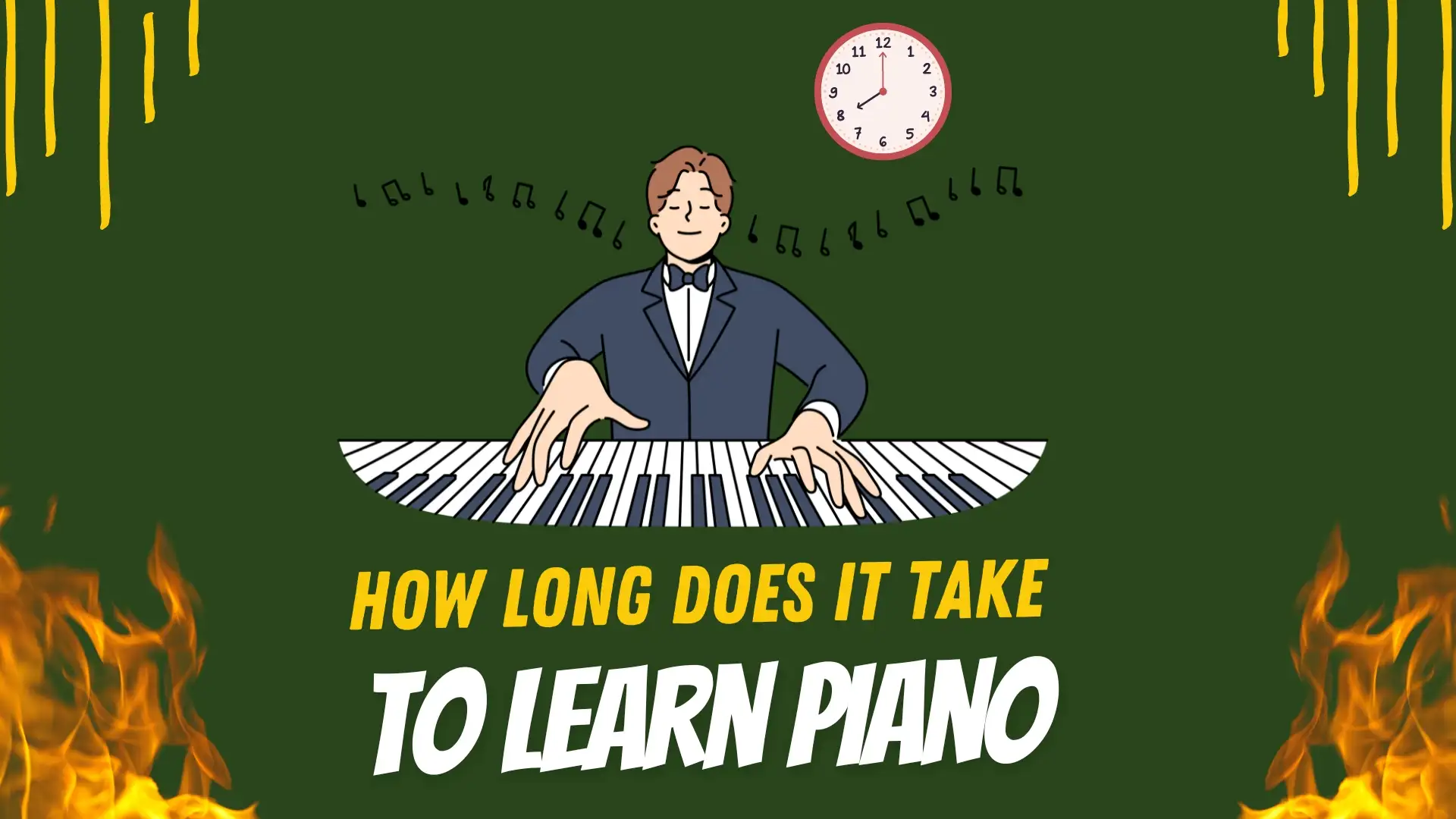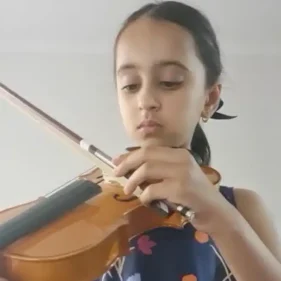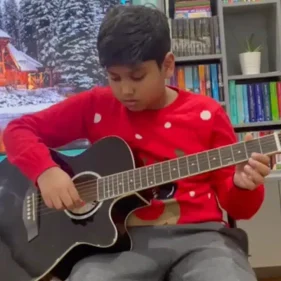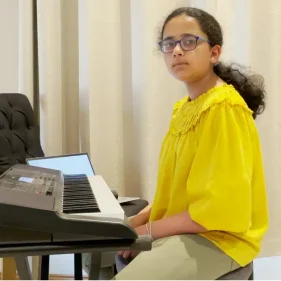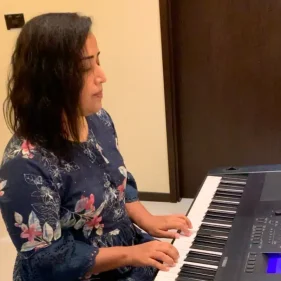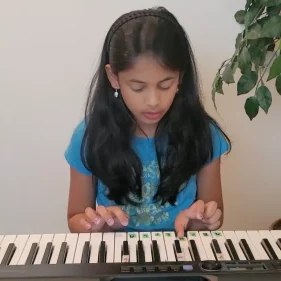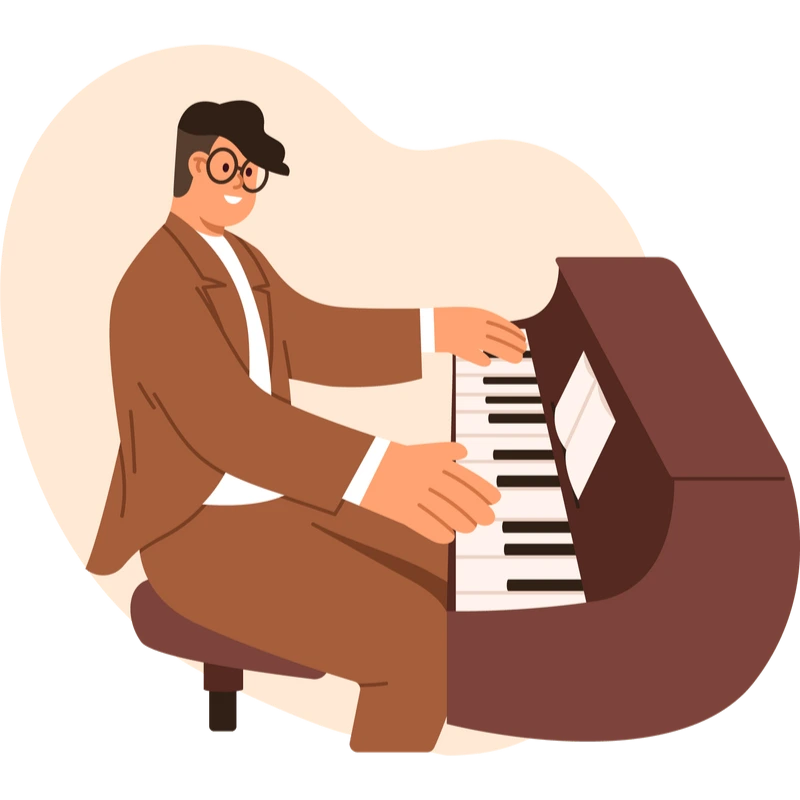The piano is widely regarded as a incredibly versatile musical instrument, across the globe. It possesses the ability to create enchanting melodies, harmonies and rhythms that cater to a range of musical genres and styles. Moreover learning to play the piano offers advantages for your mind, body and spirit. It can enhance your memory stimulate creativity uplift your mood and serve as a means, for self expression.
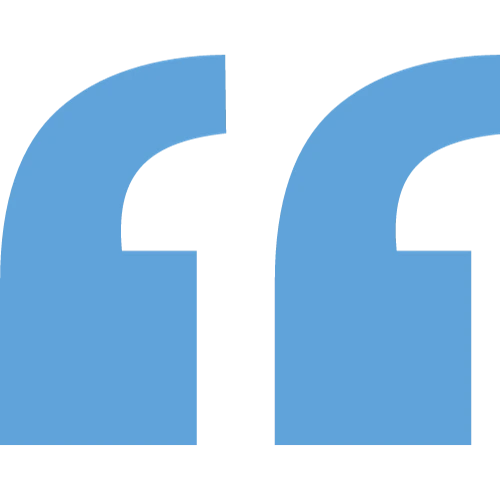
The piano goes beyond being an instrument; it serves as a canvas where emotions create beautiful melodies and each key opens up a world of feelings.
However an asked question remains; how long does it take to learn piano? Furthermore, is it ever too late to start learning this instrument? Additionally, what are some methods for practicing and honing one’s skills?
- Consistency in Practice: It’s essential to engage in dedicated practice to improve your skills. Allocate times each day for practice sessions. Commit to them.
- Patience and Perseverance: Remember that learning the piano takes time so be patient with yourself along the way. Stay persistent when faced with pieces or techniques.
- Proper Technique: Focus on developing hand posture and finger placement as you play. Having a foundation in technique will make your playing more enjoyable and efficient.
- Understanding Music Theory: Enhance your playing by gaining an understanding of music theory. Take the time to learn about notes, scales and chords to grasp the fundamentals.
- Diverse Repertoire: Explore a range of genres and styles to keep your learning journey interesting. Playing types of music not only broadens your skill set but also keeps things engaging.
- Ear Training: Train your ear by listening to music. Practice recognizing melodies, chords and rhythms which will greatly improve your abilities.
- Effective Learning Resources: Make use of high quality learning materials such as books, online tutorials or educational apps. Additionally, consider seeking guidance from an instructor for lessons.
The Benefits of Learning to Play the Piano
There are advantages that come with learning to play the piano benefiting your mind, body and soul. Here are some of the significant ones:
- Enhances Cognitive Abilities: Playing the piano stimulates and strengthens areas of the brain including memory, attention, language skills, logical thinking, creativity and emotional expression. It also improves connections between brain hemispheres and the frontal lobe responsible for problem solving, decision making and social interactions. Furthermore it has been linked to higher IQ levels and improved mental well being.
- Develops Fine Motor Skills: Playing the piano requires coordination of fingers, hands, arms and feet. It also involves mastering the skill of using both hands simultaneously—a rare ability that enhances dexterity, agility and hand eye coordination.
- Boosts Memory and Concentration: Playing the piano involves memorizing a plethora of information like notes,chords,scales,patterns and songs.It also demands multitasking—reading music sheets fingering chords utilizing pedals maintaining tempo following pitch and maintaining posture—all at once.Furthermore it helps improve memory recall abilities as sharpen concentration skills.
- Enhances Emotional Well being and Self expression: The act of playing piano holds benefits.It provides an outlet for expressing oneself while experiencing a range of emotions through music.It can be therapeutic stress reducing and empowering enriching your well being.
In summary the advantages derived from learning to play the piano extend beyond prowess.They contribute positively to aspects of life such, as development,fine motor skills,memory retention,self expression and emotional well being.
Playing the piano can bring satisfaction, relaxation and a deep sense of fulfillment. Moreover it has the ability to assist in managing stress, anxiety and depression by triggering the release of endorphins and dopamine. The brain’s chemicals that promote a feeling.
Different Methods for Learning Piano
There are methods available for learning piano each with its own set of pros and cons. Here are some of the widely utilized ones;
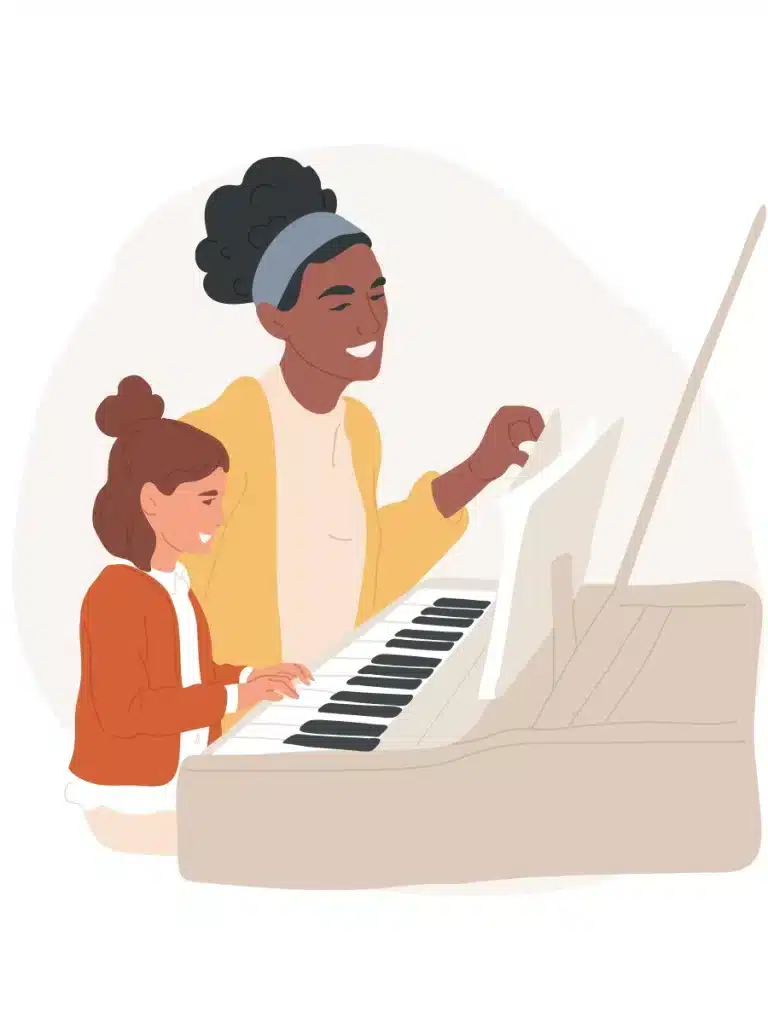
Traditional lessons: This is the tried and true method where you have a teacher who guides you through lessons and offers feedback. The teacher can be a friend, a family member or even yourself. These lessons can be conducted in person or online either individually or in groups. They can follow a curriculum. Be tailored to your individual needs.
The advantages of this method include learning from an expert receiving attention and following an approach. However it’s worth noting that traditional lessons can be expensive and time consuming.
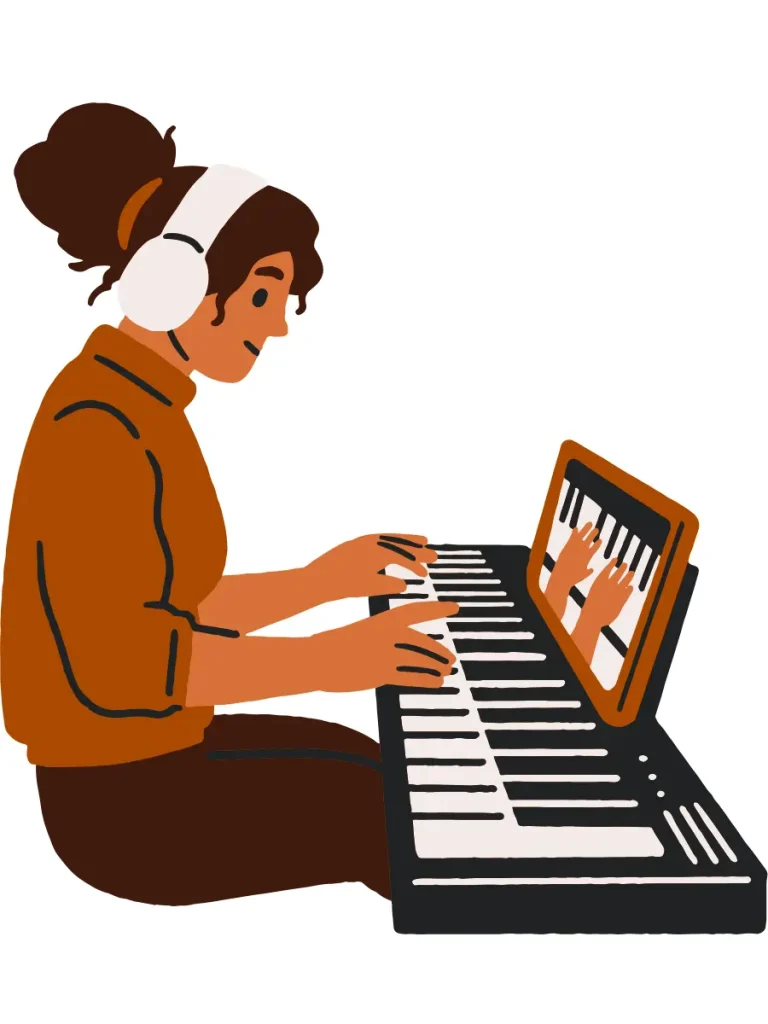
Video tutorials: This is a convenient method of piano learning where you watch videos of individuals playing the piano while explaining how to do so. Platforms like MusicMaster offer lessons covering topics, skill levels and musical styles. The advantages here are that you can learn from qualified sources at your pace and on your preferred schedule – often for free or at low cost.
Levels of Learning Piano
There are three stages of learning piano: beginner, intermediate and advanced. Each stage comes with its features, difficulties and objectives.
- Beginner: This is where you start your piano journey, from the beginning. You’ll learn the fundamentals of piano playing, such as reading sheet music playing tunes and mastering techniques.
Additionally you’ll delve into some music theory concepts like notes, scales, chords and intervals. The primary challenge at this stage is to develop finger strength, coordination and independence. - Intermediate: As you progress to the level you’ll expand your skills and repertoire while exploring genres and styles of piano playing. You’ll tackle songs and employ advanced techniques such as dynamics (volume control) articulation (how notes are played) expression (conveying emotions through music) and pedaling (using the pedals on the piano).
Moreover you’ll dive deeper into music theory topics like harmony (chord progressions) melody (the tune) rhythm (the beat) and form (structure). The main challenge here is to enhance accuracy, speediness in playing pieces while adding musicality. - Advanced: At this stage your focus shifts, towards refining your skills along with expanding your repertoire according to preferences or professional aspirations.
At this level of learning you will acquire the skills to play challenging songs while utilizing techniques, like voicing ornamentation, improvisation and composition. Additionally you’ll delve deeper into music theory by exploring analysis, history and aesthetics. The primary hurdle, in this stage is surpassing your limitations overcoming mistakes and pushing through plateaus.

Did You Know?
The piano is more, than an instrument; it represents an incredible feat of engineering! Every standard piano comes with 88 keys and each key is linked to a mechanism that consists of levers and hammers. What’s truly captivating is that when you press a key it sets off a series of events where the hammer strikes a group of strings within the piano resulting in the production of sound.
The 10000 Hour Rule For Learning Piano
The concept known as the 10,000 Hour Rule gained popularity thanks, to Malcolm Gladwell’s book “Outliers.” It proposes that around 10,000 hours of practice are necessary to reach mastery in a domain. This rule isn’t a decree. Rather a broad principle on how long does it take to learn piano?. That emphasizes the significance of intentional and concentrated practice, for honing skills.
Tips and Tricks for Fast Learning
Establish Realistic Objectives: Divide your learning process into goals. Take joy in every accomplishment no matter how small to maintain your motivation.
Engage in Focused Practice: Prioritize the quality of your practice sessions, over the quantity. Mindful practice, where you pay attention to details yields results more than repeating actions.
Embrace New Experiences: Keep your curiosity alive by exploring genres and styles. By broadening the scope of what you learn you do not deepen your understanding. Also inject diversity into your learning journey.
Conclusion
Experience in playing the piano requires dedication, time and genuine passion. Learning differs from person to person in terms of duration. One must find joy in learning and progress. You should stay committed to the world of creating music. No matter if you are a beginner or advanced player after all it is your own personal exploration. Let the music flow through you!
Interested, in becoming a guitar master? Discover the mysteries of how time it takes to conquer this musical instrument. Delve into suggestions, milestones and the exciting path that lies ahead in our most recent blog post. Begin your journey today!
Related: Find How long does it take to learn guitar?
FAQs
Is it too late for adults to start learning how to play the piano?
It is never too late for adults to begin learning how to play the piano.
What is the effective way to learn how to play the piano?
The effective method of learning how to play the piano can vary,. A combination of lessons, practice and consistent effort tends to yield good results.
How much does it typically cost to learn how to play the piano?
The cost of learning how to play the piano can range from accessing resources all the way up, to private lessons with fees differing significantly.
Is it necessary to have a piano teacher?
While having a piano teacher can be self learning using resources is also a viable option.
What type of piano should I consider getting for learning purposes?
For those looking into learning purposes a digital piano with keys would be a choice. If possible an acoustic piano would be ideal.
How long does it usually take to become proficient in playing the piano?
The time required for one’s proficiency in playing the piano may vary. However dedicating practice over months or even years is typically necessary, for achieving proficiency.


